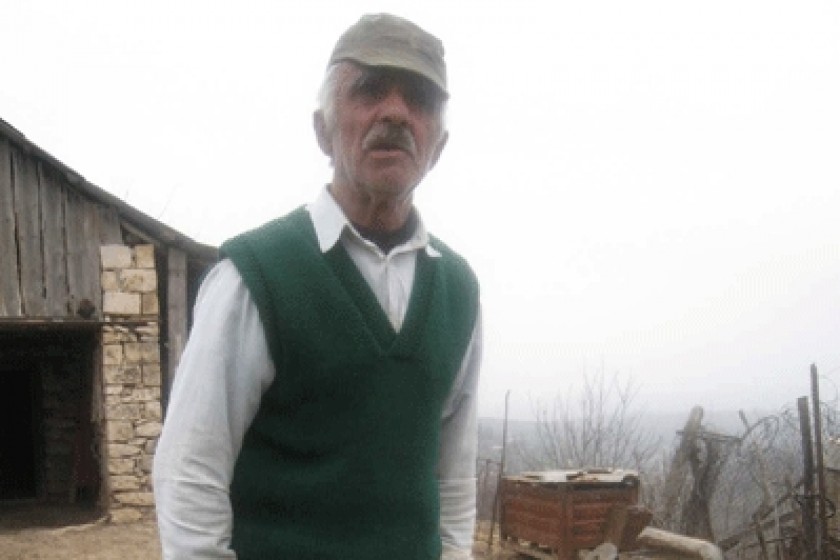
Grandpa Aramayis – “I see through my ears”
Aramayis Badalyan is a 76 year-old resident of Maghavouz village, located near the northern Artsakh regional center of Martakert. The old man can hardly see nowadays. "I was born in this village. So were my father and mother. My entire clan was born right here," he says. Out of ten siblings only four are still alive. The others died after the Artsakh War ended in 1994. The family had been dirt poor, sometimes going without food to eat for months. This lack of adequate nutrition led to a number of health problems with the kids. "Until the age of 17 or 18, I thought everyone else had the same sight as I did. One day my mother sent me out to bright a calf back from the forest. The sun set and I couldn’t find my way back," he told me when I recently visited. In school, he was always seated in the back row of the class due to his ragged clothes. Aramayis was always being ribbed by his classmates and even the teacher. One day, when he asked for a book, the teacher mockingly asked him, "And I suppose you want glasses as well?" The boy left school after completing the third grade and began a life of tending livestock and farming. In 1962 Aramayis got married to a girl named Anahit. They had four children. All have moved to Martakert but the youngest girl who cares for her father in the village. Aramayis says he uses sounds to get his bearings. He can leave in the morning, go off, and return in the evening with no problem. "But I have to walk to where I’m going. It’s more difficult by car," he says. Even in the dead of winter, Aramayis doesn’t wear a hat with ear flaps. They prevent him from hearing and thus getting around. "It’s like I see with my ears. All my memory is stored in my ears. The only other time when I get disoriented is when I get nervous." When the weather is nice, Aramayis goes off to the forest to collect brush. On inclement days, he’s off to the neighbours to pass the time of day. "I have to stay active. The land under my feet gives me energy. When I lay out a straight row of plantings in the vegetable patch, I get encouraged and want to make a second and third," says Aramayis moving his fingers in a straight line on the table. He says that life in the village is improving and that those who work can eat. During the war, Aramayis says he remained in Maghavouz with the other volunteer fighters to defend the home front. When the village was being shelled, Aramayis would always turn his back to the incoming fire. This way, if he ever got killed, others would recognize his face. He had no identity documents at the time. "Other than my teeth falling out, I have no health complaints. When I talk, my tongue flaps around like a sheet in the wind. I also have to take a taxi to get to Martakert. There’s no public transport in these parts," Aramayis confides, adding that he could really use a good bed for a relaxing night’s sleep.
 Videos
Videos Photos
Photos




Write a comment